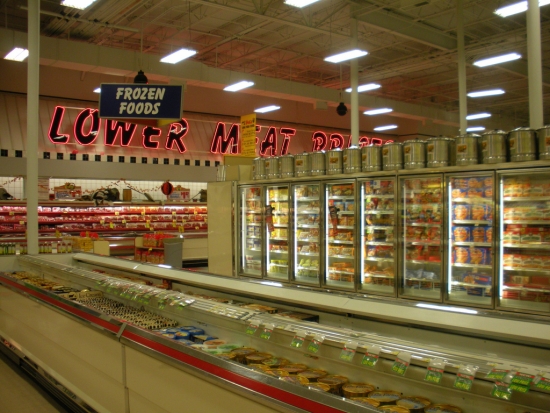Since the start of the recession in 2008, consumers in the UK have faced pay freezes, rising energy costs and a dramatic reduction in the level of household disposable income available to them. However, the largest challenge facing the budget setters in each family has, arguably, been the almost continuous upward mobility of shop price inflation which has upped the cost of everything from vegetables to new clothing and consumer electrics.

Fortunately, this tide of rising costs for essentials seems to be turning, as the British Retail Consortium (BRC) last month recorded a deflation in costs for the first time in three and a half years. While this is by no means an indication of permanent change for the better, it is certainly a sign that retailers are doing their utmost to ease the burden on British families.
According to the BRC – Nielsen Shop Price Index for May 2013, overall deflation for the month totalled 0.1 per cent, comparing favourably to April’s 0.4 per cent inflation rate. While food inflation remains relatively high at 2.4 per cent, it has slowed from April’s rate of 2.9 per cent, and non-food items deflated to 1.5 per cent from April’s reasonable 1.0 per cent.
Director General of the BRC, Helen Dickinson, praised retailers for their dedication to lowering prices for their customers.
She said; “Shop prices fell in May, the first time our measure has shown deflation for over three and a half years.
“It bears out yesterday’s sales figures, which showed that retailers used a range of promotions and offers to drive demand and shift seasonal stock which didn’t sell well during the prolonged cold snap earlier in Spring.
“Times remain tough, but it seems that retailers are reading the market and doing what they can to offer customers the best possible value on their shopping.”
The boom in sales activity last month has largely been put down to the first sustained period of stable weather to be seen in the UK so far this year. Shops were finally able to shift excess stock left over from the Christmas trading period thanks to a higher number of customers hitting the high street and impulse buying, while large ticket items such as furniture and flooring also proved popular thanks to the high volume of promotions introduced by retailers.
Head of Retailer and Business Insight at Nielsen, Mike Watkins, believes that May’s results indicate a brighter summer trading season for retailers despite their present reliance on promotions to fuel business.
He says; “With a squeeze on real incomes continuing in 2013, falling shop prices will be welcomed by cash-strapped shoppers.
“However, with levels of recent consumer spending also being impacted by the weather, there continues to be a dependency by many retailers to use vouchers or coupons to drive footfall.
“Nevertheless, with food inflation slowing as we finally start summer, the outlook for the next three months is looking much brighter.”
Do you feel more inclined to shop on the high street as the weather improves, or do you pay attention to deals, promotions and prices rather than the skies?
Previous Post
Green Light for Wetherspoons First Motorway Pub
Not every real estate transaction is the same- a
first time home purchase is unique. >>>> They may not be familiar with your marketplace.
If ones business is affected by the recession (and most are) it might
be a good idea to simply accept the possibility of a reduced monthly income for awhile.
– If you need a home inspector, or a mortgage broker, building contractor, mover, or
title insurance provider, your agent will probably be able to put you in touch with some of them.
You need to choose the agent that is truly best for your situation. What style of home do you most frequently work
with.